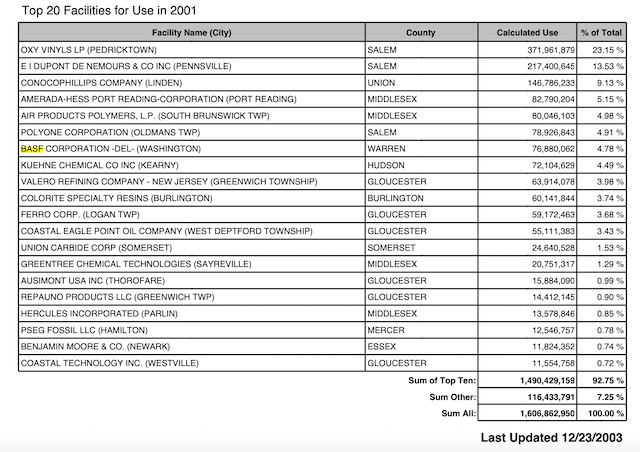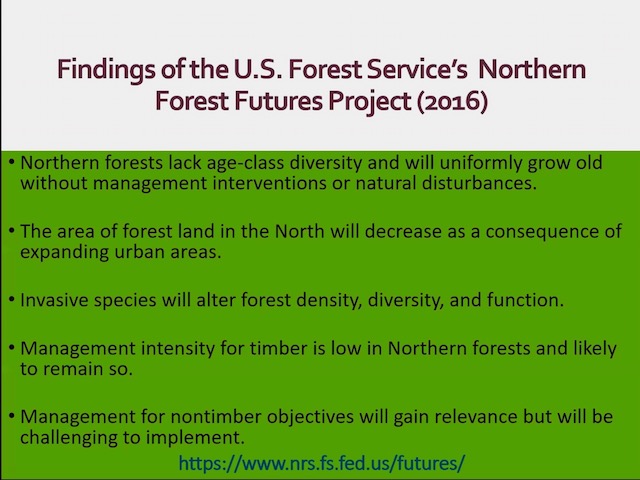BREAKING: NJ Conservation Foundation And NJ Spotlight Discover DEP Logging!
NJCF Signed Off On Forestry Task Force Recommendations That Promote DEP Logging
Given DEP’s flawed and arrogant policies, which have destroyed any trust in DEP, any legislation would need to be extremely prescriptive and include many specific numeric standards, mandates and prohibitions. Such a bill is unlikely to secure passage, thus killing Smith’s reforms. ~~~ Letter to Murphy DEP Commissioner LaTourette (12/15/22)
I must say, I was left scratching my head and got a belly laugh out of today’s NJ Spotlight story on another DEP logging project, see:
Those same photos, that same outrage, and those same criticisms of DEP have been displayed here for over a decade, most recently:
This NJCF discovery and criticism of DEP comes at a time when NJCF has come under harsh criticism for their forestry practices and their close relationships with and support of DEP and antipathy towards DEP regulation.
Their credibility also took a huge hit with their manipulative role as Co-Chair and supporter of the seriously flawed Smith Forestry Task Force recommendations.
In direct contradiction of the NJCF criticisms reported today, in fact, the recently released recommendations of Senator Smith’s Forestry Task Force – Co-Chaired by NJCF – explicitly supports and grandfathers exactly this DEP logging project that NJCF now criticizes, see this post:
2. The Framework explicitly grandfathers all current DEP Forest Management Plans (like Sparta Mountain and other Highlands and Pinelands logging) and programs, including recent scientifically flawed and destructive Statewide forestry policy under the DEP Forest Action Plan and the forestry related issues in the DEP 80X50 Climate Science Report.
The Framework hides this massive loophole under the following caveat, which is presented right up front and not in the body of the recommendations:
“None of the recommendations are intended to interfere with current approved forest management plans and their associated activities.“
For years, DEP has conducted these kind of destructive logging projects across the State.
NJCF KNOWS that these flawed DEP logging practices are explicitly supported in Statewide DEP policies and plans, including the Forest Action Plan, the forestry sections of the DEP Climate 80X50 Report, and Natural Working Lands Initiative
NJCF has never criticized any of that.
NJCF even supported it. Emile DeVito praised the concept – no mention of soils and plants and habitat and core forests – of “mowing the forest” (at time 2:05):
“Most of the thinning happens with a mower – its not a lawn mower its a forestry mower. But they’re not really removing any large trees. Most of them are only a few inches in diameter. They’re all short and bent over, those are the things being removed, for the most part. They’ll resprout anyway.
So, let’s hit a few highlights of today’s Spotlight story to illustrate that:
1. DEP Asserts A False Ecological Justification
NJ Spotlight reports DEP’s cover for logging:
According to DEP, the Glassboro project is designed to create habitat needed by the American woodcock, a species of concern in New Jersey and other states because of declining numbers related largely to habitat loss and forest succession — the natural pattern of ecosystem change that takes place over time.
DEP has been logging under the false pretext of habitat creation – usually for game species to appease the hunting lobby – for decades. The Sparta Mountain logging to create habitat for golden winged warbler exposed this fraud. As I’ve written multiple times:
The DEP currently exploits flawed and scientifically false justifications – like wood products sequester carbon and “thinning” promotes ecological health – to justify logging. (2/21/23)
DEP claims that NJ’s forests lack age class diversity (solution: thinning to create “young forests”); that forests are unhealthy due to excessive tree density (solution: reduce density via “thinning”); that forests are disease prone (solution: thinning to increase forest health); forests are wildfire hazards (solution: thinning to reduce fuel load and “ladder fuels); forests are vulnerable to drought and climate change (solution: thinning to reduce tree competition for water and consumption of water via evapotranspiration). (12/16/22)
The logging industry …. very cynically have teamed up with hunters and money hungry entrepreneurial conservation groups and underfunded State wildlife and forestry agencies. They obscure the logging by justifying the cuts to protect endangered birds, and spread money around to buy support for that. (6/5/16)
[look at DEP’s Map of the Glassboro WMA – this sure suggests a hunting biased “single use management” – as in managed by and for hunters:
But Emile DeVito is angry now, about just 21 acres of logging:
“It is not forestry; it’s land clearing,’’ said Emil DeVito, manager of science and conservation at the New Jersey Conservation Foundation. “This is a pristine intact core forest. We are supposed to be protecting those places.’’ The upland forest provided habitat for barred owl and red-shouldered hawk.
We’ve been saying that for years, Emile – where have you been?
Flawed Conservation Rationale
We are left scratching our head, because the DEP proposal is at odds with the fundamental conservation strategy that led to the passage of the Highlands Act.
The prime conservation imperative in passage on the Highlands Act was preservation of the existing large tracts of contiguous forest, maximization of forest canopy cover, and prevention of fragmentation.
2. Need to Stop Logging And Conduct a Review of DEP’s Forestry Policies
NJ Spotlight reported:
In a letter to DEP, four conservation groups urged an immediate halt to any further activity at the site, part of a 2,341-acre wildlife management area.
First of all, the “immediate halt” NJCF is seeking is limited to just this one DEP logging project.
But again, where the hell has NJCF been for years?
We’ve repeatedly called for a statewide moratorium on DEP logging, most recently at the outset of the Smith Forestry Task Force.
Those demands secured no support by NJCF, who Co-Chaired the Task Force.
Way back during the DEP Sparta Mountain logging controversy, we called for a review of DEP logging policies. That got no support or press coverage.
Again, we sought to stop DEP logging – statewide – and urged DEP to withdraw the DEP Pinelands logging plan:
While former Murphy DEP Commissioner McCabe imposed a temporary “pause” to review DEP forestry policies and practices, the current Commissioner has ignored critics, abandoned that review, and expanded DEP’s misguided forestry approach.
Current DEP Commissioner LaTourette has expanded DEP’s controversial misguided and aggressive forestry practices geographically into the Pinelands. Programmatically, he has expanded the scope of DEP’s forestry program to include seriously flawed “carbon defense” and climate justifications.
With little public knowledge and legislative authorization, in defiance of critics, he has adopted a Statewide Forest Action Plan and developed a Working Public Lands program to further promote logging and misguided forestry practices.
DEP even recently floated an incredibly bad trial ballon to expand development, commercialization, and privatization of all Green Acres and State lands, including State Parks and Forests.
3. Lack of State and Local Regulation of Logging
NJCF knows that DEP forestry work is not regulated.
And the lack of regulation is not limited to wetlands. We exposed this over 7 years ago:
Forest management is granted an explicit exemption in DEP’s outdated 1995 Wetlands BMP Manual:
How to protect NJ’s wetlands while practicing forestry activities is an integral part of this manual. Under the 1987 NJ Freshwater Wetlands Protection Act, normal harvesting of forest products in accordance with a Forest Management Plan approved by the State Forester is exempt from the requirement of wetland permit. The plan must meet the minimum standards necessary for protecting and maintaining NJ’s forested wetlands and as well as the quality of the surface waters within these wetlands.
The Smith Forestry Task Force – Co-Chaired by NJCF – failed to recommend that these regulatory loopholes be closed and that forestry be strictly regulated like any other destructive development activity.
So, Emile is being disingenuous here:
With the clearing of the land, the ability for the affected area to return to a forest is gone, said DeVito, who added the activities appear to be violations of state wetlands regulations. A portion of the tract contains vernal pools, essential breeding habitat for amphibians, he said. In this case, the pools supported native woodland frog populations.
4. DEP Deception and Bad Faith
This quote absolutely just blew my mind – and it is obviously designed to divert from recent criticism regarding NJCF close relationships with and funding by DEP and the NJCF failures in Co-Chairing Smith’s Forestry Task Force:
For Gilbert, who served as a co-chair of the recent task force on forest management, the action taken by the division illustrates the deficiencies in how the state oversees its stewardship of woodlands. “You can’t trust the DEP to do the right thing,” he said.
The department must be required to follow stringent rules for any projects that alter public forestlands and to notify and consider input before moving forward on those projects, he said.
Again, as my 12/15/22 letter to DEP Commissioner LaTourette makes clear, we’ve been saying that forever, too.
And this one was rich, too, coming from PPA who has supported massive DEP logging and wildfire destruction of vegetation and habitat in the Pinelands.
NJ Spotlight reported:
The clearing demonstrates that plants do not matter when the fish and wildlife division is dealing with wildlife issues, according to Jaclyn Rhoads, assistant director of the Pinelands Preservation Alliance.
NJCF and PPA and NJ Spotlight obviously are using this DEP logging project to try to salvage and restore their damaged credibility and reputations.
It is unlikely to work.
[End Note: For anyone who thinks I’m being too harsh on Emile and NJCF – I can be nice, too. Ironically, our a decade ago, Emile helped defeat the DEP’s insane logging plan for Bulls Island:
Emile also helped oppose DEP’s insane Sparta Mountain logging plan,







